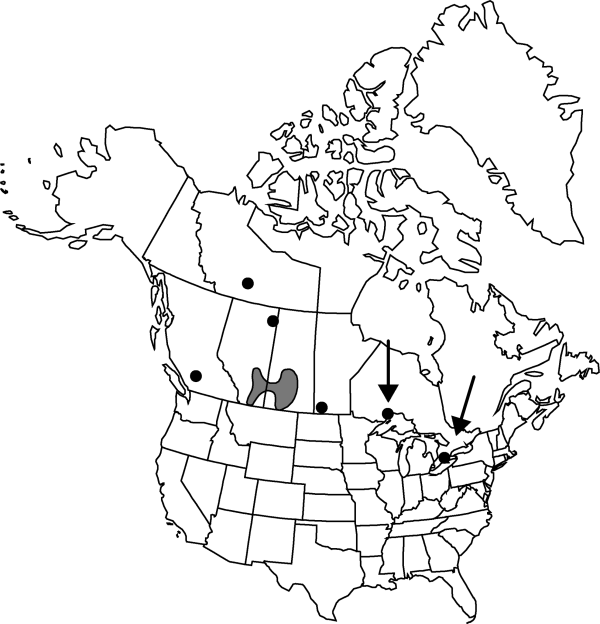Difference between revisions of "Corispermum hookeri var. hookeri"
Treatment appears in FNA Volume 4. Treatment on page 318.
imported>Volume Importer |
imported>Volume Importer |
||
| Line 42: | Line 42: | ||
|publication year= | |publication year= | ||
|special status= | |special status= | ||
| − | |source xml=https:// | + | |source xml=https://bitbucket.org/aafc-mbb/fna-data-curation/src/2e0870ddd59836b60bcf96646a41e87ea5a5943a/coarse_grained_fna_xml/V4/V4_613.xml |
|genus=Corispermum | |genus=Corispermum | ||
|species=Corispermum hookeri | |species=Corispermum hookeri | ||
Latest revision as of 22:59, 5 November 2020
Inflorescences dense throughout, rarely interrupted, ovate, ovate-clavate. Fruits oblong-obovate or obovate.
Phenology: Flowering late summer–fall.
Habitat: Sandy and gravely shores of rivers and streams, sand dunes, waste places
Elevation: 0-100 m
Distribution

Alta., Man., N.W.T., Ont., Sask.
Discussion
Specimens closely approaching var. hookeri, but with smaller fruits, i.e., transitional toward Corispermum villosum, are known from Montana and North Dakota. Specimens from Ontario were probably introduced from the prairie region.
Selected References
None.
Lower Taxa
None.